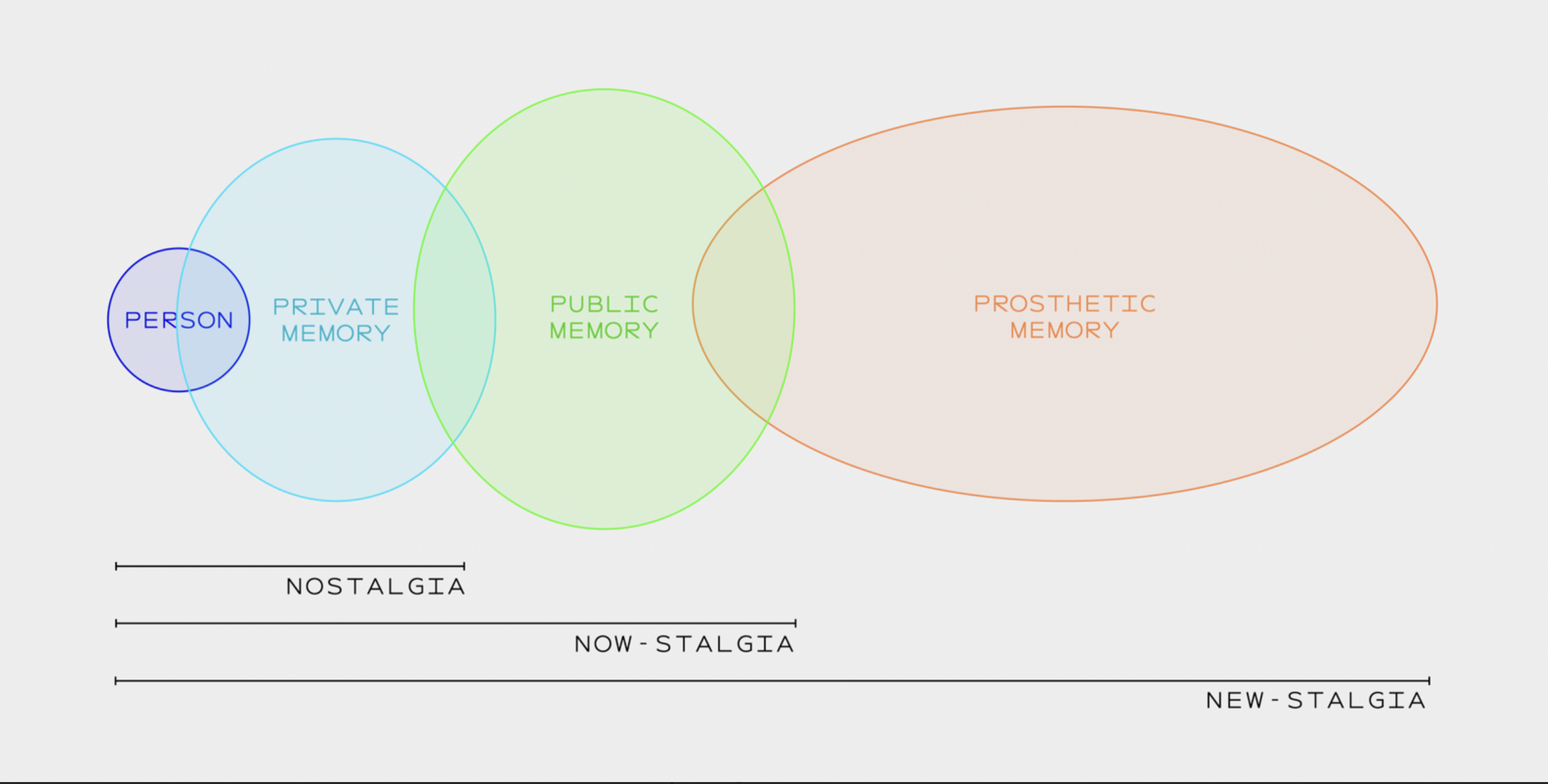ccccultura

Traditionally, nostalgia was private. It was tied to homesickness or personal memories, often tinged with loss. But in the 21st century, it’s become increasingly collective. Shared nostalgia – or “now-stalgia” – is generational and cultural. Think millennials reminiscing about indie sleaze. It spreads via memes, media and even political messaging.
Then there’s “new-stalgia” – a blend of personal, collective and what media theorist Alison Landsberg calls prosthetic memory: memories acquired not from lived experience but mass media. It’s nostalgia for things never personally lived – a phenomenon known as anemoia. Among Gen Z, for example, 35% feel nostalgic for the 1990s, despite being born in the 2000s.
Protein XYZ


Culture is Stuck
Meh-ification, the plot thickens?
Beth Bentley
Jordan • Stop Chasing Trends & Start Understanding Them
ArchiveSociety

